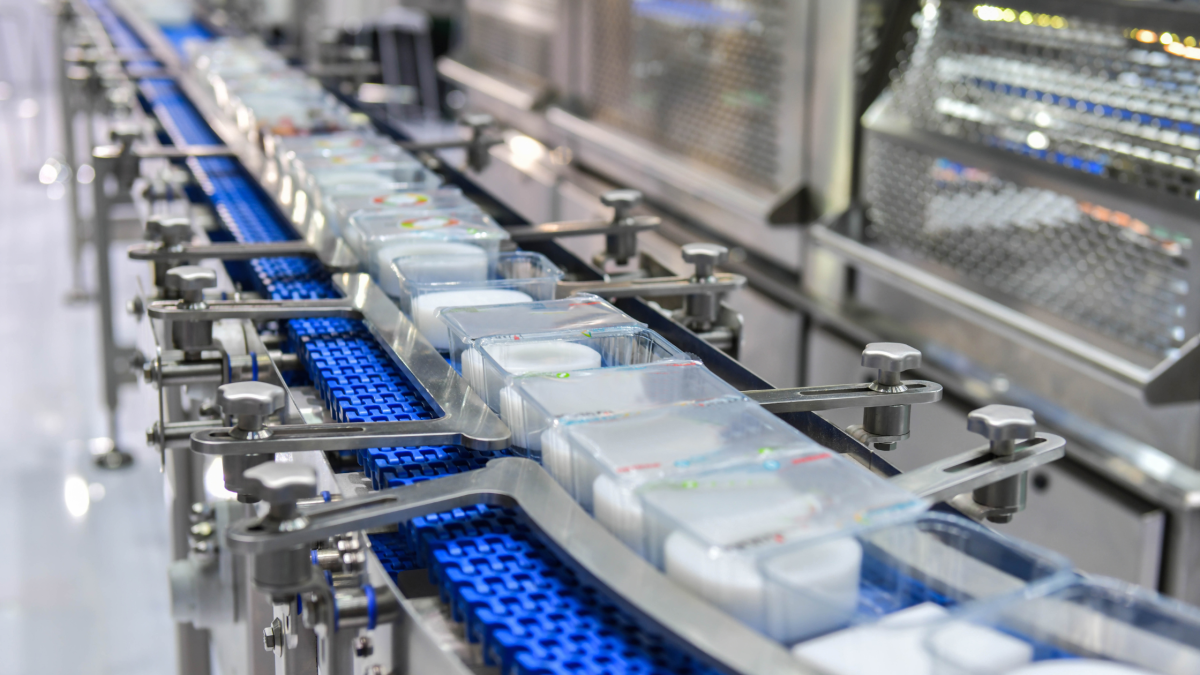The different types of bearings are used in the Food Processing and Packaging equipment which needs to be designed keeping specific standards in mind. This blog discusses various aspects of the use of bearings in the Food Processing and Packaging Industry to help you understand it in a better way.
The food processing industry is growing day by day which caters to a multitude of industries covering agriculture, harvesting, food preparation, packaging, etc. Since it is the era of modernization, industries are fostering mechanical devices and machinery to make production up to the mark and serve consumers with the best quality food products. So to understand it better, from food processing to packaging, the bearings may play a crucial role in powering varied machinery while offering them substantial support to foster high performance and durability.
The Food Industry is opting for methods of modernization through which machinery and advanced tools can be used to solve critical problems of the industry. The role of choosing suitable bearings is crucial to delivering quality standards while complying with food regulations.
Types of Bearings Used in the Food Processing and Packaging
The bearings are used in different food processing and packaging machines. It may include blenders, choppers, slicers, skimmers, etc. Here are some of the different types of bearings that are widely used for different purposes in the equipment or machinery intended to be used in food processing.
- Corrosion Resistant Bearings: These are corrosion-resistant bearings built for high-performance rotation which is used in food processing devices like blenders and choppers.
- High-Temperature Bearings: These types of bearings are designed to withstand both radial and axial loads. It contains balls that are used to reduce friction within the parts of machinery. For specific use in applications in food processing machines or equipment, it can also be used with nickel plating or thermoplastic materials. The specially designed housings in these bearings are moisture and corrosion-resistant.
- Polymer Bearings: These are widely used bearings manufactured with food-safe plastic materials and don’t require lubrication. In many food processing devices, plastic bearings are a perfect fit as they can resist well with chemical changes that are caused due to exposure of food materials.
- Ceramic Bearings: These types of bearings are another alternative to bearings that are used in the food industry. They are more durable, offer longer life, and require less lubrication. They are quite high performing in terms of operations as they are used in reducing friction and can work well in marginal lubrication.
- Stainless Steel Bearings: This is another corrosion-resistant bearing that is designed to keep up with applications where more power is required in machinery. These bearings are manufactured with stainless steel which offers longer life and corrosion-resistant quality.
Why Bearings in Food Industry Different?
The food industry needs to accommodate specific demands due to challenging operating conditions due to which it needs to follow specific design principles to make it comply well with the food safety standards. Here are some of the differentiating aspects of bearings that are used for applications in the food processing industry.
- Re-lubrication Free Bearings: Lubrication used in the F&B industry needs to be of food-grade quality and the re-lubrication sometimes may become a challenge due to the continuous use of machinery and appliances.
- Bearings with Special Designed Seals: Specially designed seals don’t let the food materials and liquids enter the bearings. These types of bearings also protect food and drink to remain isolated from the machinery which is widely suitable for food processing machines.
- Stainless Steel Bearings: These bearings are manufactured using AISI 316 stainless steel which is of high quality and offers better resistance to corrosion as compared to other materials.
Challenges for Use of Bearings in the Food Industry
The food processing and packaging industry have many challenges. The challenges like moisture, excessive heat or temperatures, etc. are some of the aspects that can impact the operation of bearings hence it needs perfect precision, design, and manufacturing process that can cater to the demands of the food processing and packaging industry in an adequate manner.
How to Consider Bearings for Food Processing & Packaging Applications?
The demands related to the use of bearings in food processing and packaging are quite different and need to be addressed adequately. While some of the aspects are already discussed in this blog, it is crucial for manufacturers in the food processing and packaging industry to consider high-quality bearings that can align well with specific food-related standards.
While machinery and equipment are a crucial need of current times, it is up to the manufacturers to adapt manufacturing methods to make reliable products designed to cater to the food industry in an aligned manner. In this scenario, the specially designed bearings are something worth considering.










